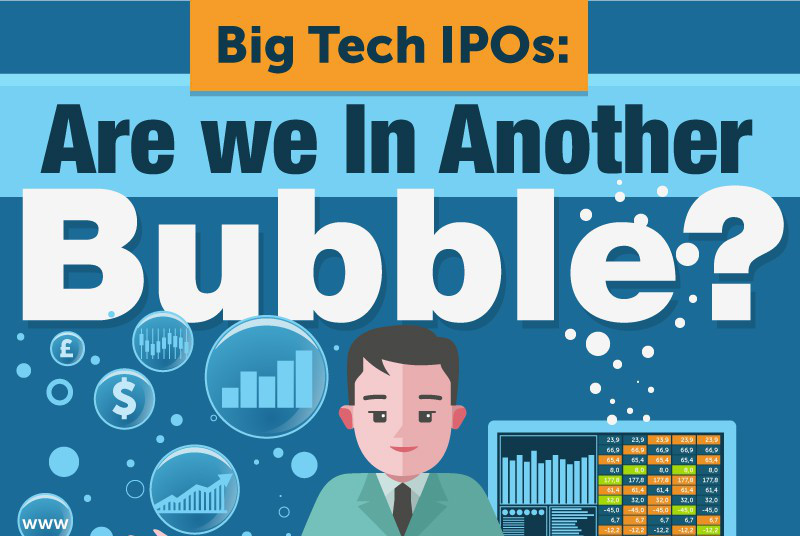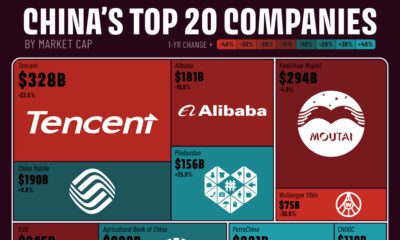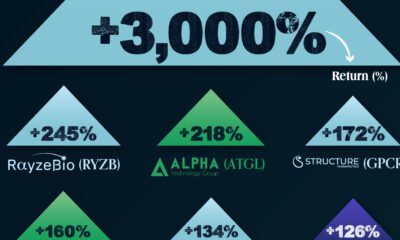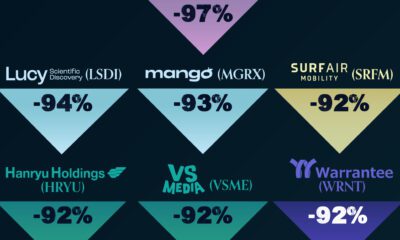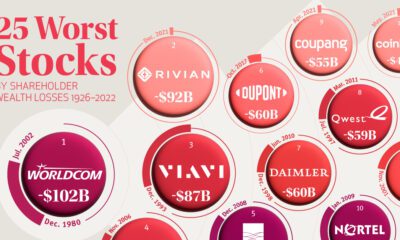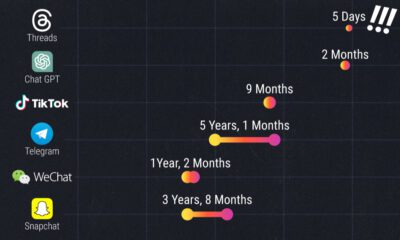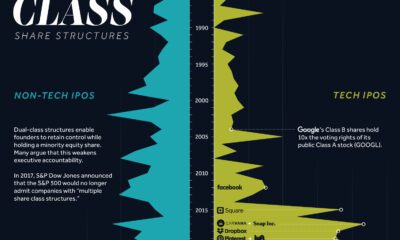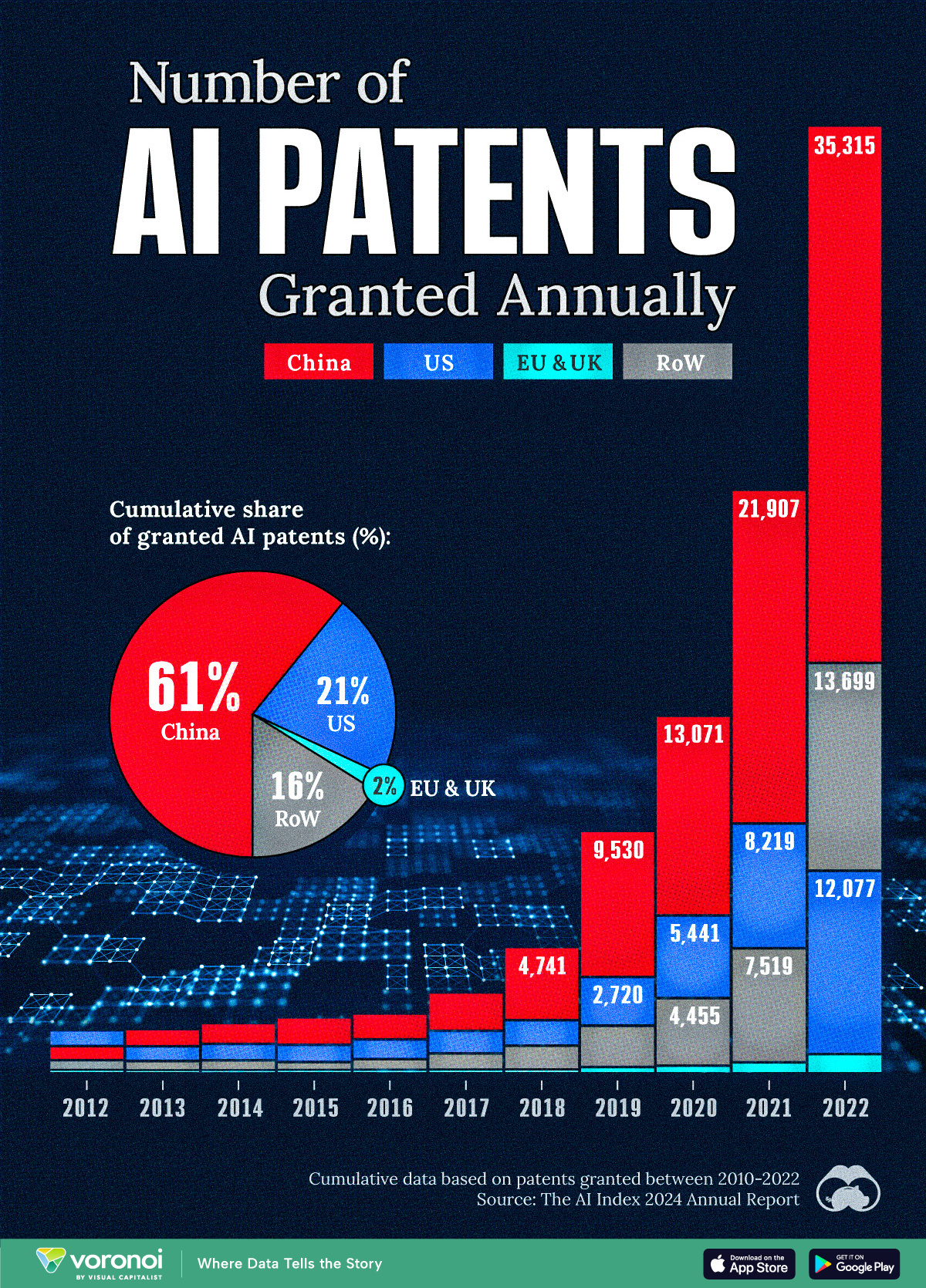Technology
Is Big Tech In Another Bubble?

Is Big Tech In Another Bubble?
“It’s different this time.”
Right now all the talk is about big tech IPOs – particularly with Alibaba completing the biggest IPO ever and companies like Uber moving towards $40 billion valuations.
Warren Buffett says that in business, the rear-view mirror is always clearer than the windshield. To this point, we would have to agree: even though it may feel like this time it is different, there may be something unexpected hidden that clouds our collective judgement. We may have another tech bubble on our hands.
Detractors will say that companies in the Dotcom bust spent too much money too fast, and that everything was speculative. That, in today’s market, companies are making real ground on revenue and earnings growth, and companies are more scalable than ever.
However, we would point out that it is many of the things that make startups scalable that also could lead to the demise of big tech. Technology moves so fast that all it takes is an idea to disrupt their business model. Yahoo! purchased Geocities in January 1999 for $3.57 billion and now Geocities does not exist. Why? Because the business model got outdated very fast – platforms such as WordPress allowed people to build sites without the embedded advertising and hosting got way cheaper. This all happened over the course of a few years, and it was a game changer.
Do we expect that companies like Facebook, Snapchat, Uber, Lyft, Amazon, and Alibaba to be around in the same capacity in 10 years? What will their maturity look like, especially as technology continues to change? How will this affect valuations for more speculative IPOs?
Original graphic from: WhoIsHostingThis.com
Technology
Visualizing AI Patents by Country
See which countries have been granted the most AI patents each year, from 2012 to 2022.
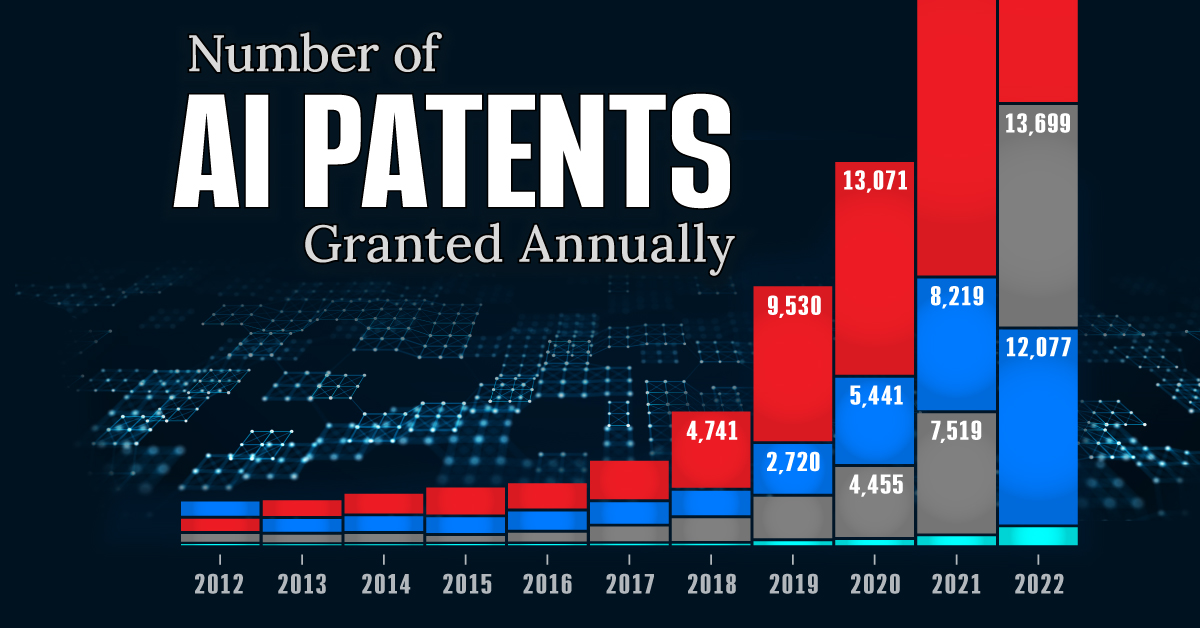
Visualizing AI Patents by Country
This was originally posted on our Voronoi app. Download the app for free on iOS or Android and discover incredible data-driven charts from a variety of trusted sources.
This infographic shows the number of AI-related patents granted each year from 2010 to 2022 (latest data available). These figures come from the Center for Security and Emerging Technology (CSET), accessed via Stanford University’s 2024 AI Index Report.
From this data, we can see that China first overtook the U.S. in 2013. Since then, the country has seen enormous growth in the number of AI patents granted each year.
| Year | China | EU and UK | U.S. | RoW | Global Total |
|---|---|---|---|---|---|
| 2010 | 307 | 137 | 984 | 571 | 1,999 |
| 2011 | 516 | 129 | 980 | 581 | 2,206 |
| 2012 | 926 | 112 | 950 | 660 | 2,648 |
| 2013 | 1,035 | 91 | 970 | 627 | 2,723 |
| 2014 | 1,278 | 97 | 1,078 | 667 | 3,120 |
| 2015 | 1,721 | 110 | 1,135 | 539 | 3,505 |
| 2016 | 1,621 | 128 | 1,298 | 714 | 3,761 |
| 2017 | 2,428 | 144 | 1,489 | 1,075 | 5,136 |
| 2018 | 4,741 | 155 | 1,674 | 1,574 | 8,144 |
| 2019 | 9,530 | 322 | 3,211 | 2,720 | 15,783 |
| 2020 | 13,071 | 406 | 5,441 | 4,455 | 23,373 |
| 2021 | 21,907 | 623 | 8,219 | 7,519 | 38,268 |
| 2022 | 35,315 | 1,173 | 12,077 | 13,699 | 62,264 |
In 2022, China was granted more patents than every other country combined.
While this suggests that the country is very active in researching the field of artificial intelligence, it doesn’t necessarily mean that China is the farthest in terms of capability.
Key Facts About AI Patents
According to CSET, AI patents relate to mathematical relationships and algorithms, which are considered abstract ideas under patent law. They can also have different meaning, depending on where they are filed.
In the U.S., AI patenting is concentrated amongst large companies including IBM, Microsoft, and Google. On the other hand, AI patenting in China is more distributed across government organizations, universities, and tech firms (e.g. Tencent).
In terms of focus area, China’s patents are typically related to computer vision, a field of AI that enables computers and systems to interpret visual data and inputs. Meanwhile America’s efforts are more evenly distributed across research fields.
Learn More About AI From Visual Capitalist
If you want to see more data visualizations on artificial intelligence, check out this graphic that shows which job departments will be impacted by AI the most.
-

 Green1 week ago
Green1 week agoRanking the Top 15 Countries by Carbon Tax Revenue
-
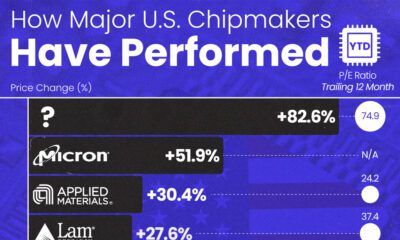
 Technology2 weeks ago
Technology2 weeks agoThe Stock Performance of U.S. Chipmakers So Far in 2024
-

 Markets2 weeks ago
Markets2 weeks agoCharted: Big Four Market Share by S&P 500 Audits
-

 Real Estate2 weeks ago
Real Estate2 weeks agoRanked: The Most Valuable Housing Markets in America
-

 Money2 weeks ago
Money2 weeks agoWhich States Have the Highest Minimum Wage in America?
-

 AI2 weeks ago
AI2 weeks agoRanked: Semiconductor Companies by Industry Revenue Share
-

 Travel2 weeks ago
Travel2 weeks agoRanked: The World’s Top Flight Routes, by Revenue
-

 Countries2 weeks ago
Countries2 weeks agoPopulation Projections: The World’s 6 Largest Countries in 2075

